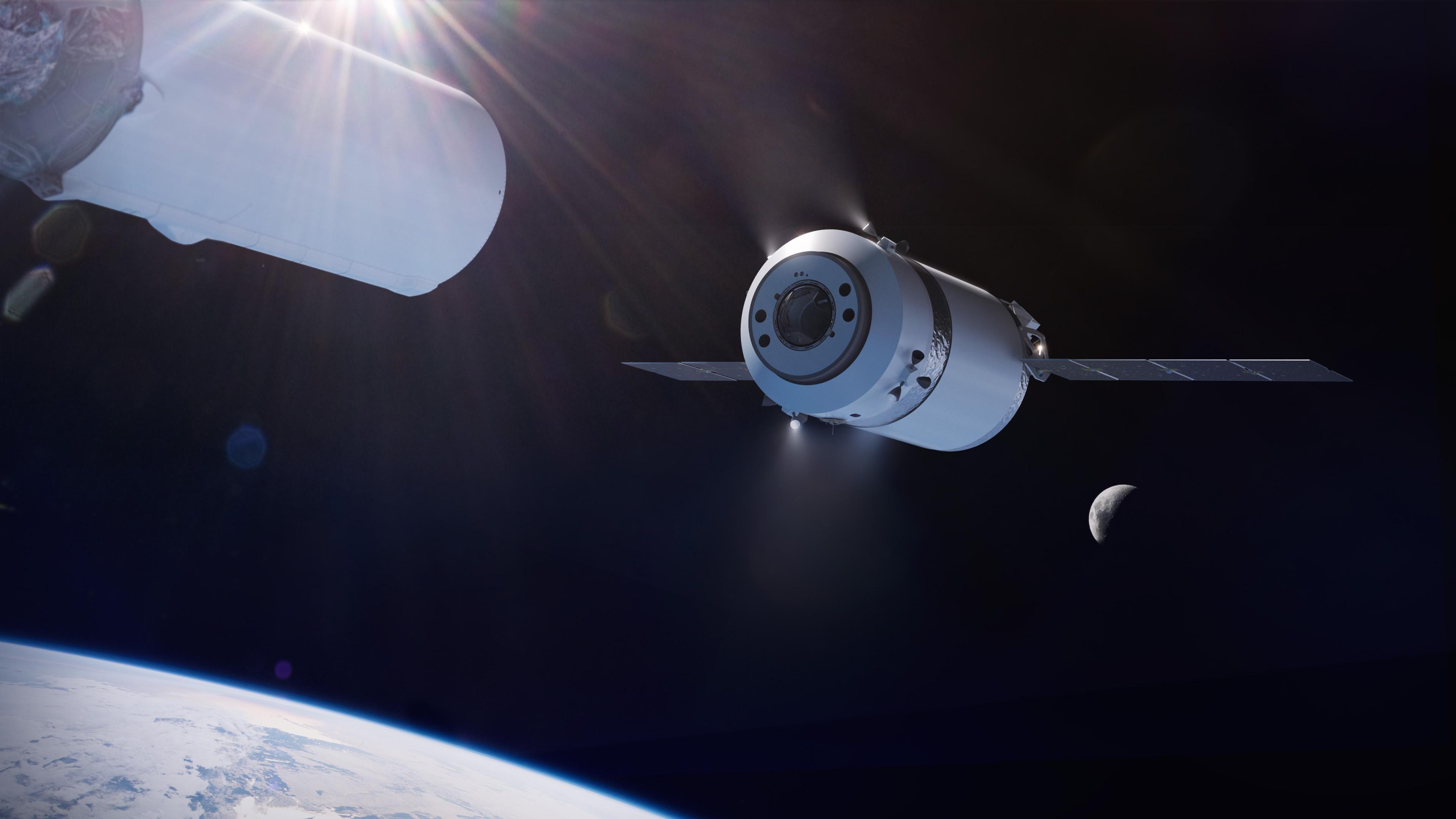
NASA has selected SpaceX as its first vendor to fly cargo to the planned lunar-orbiting Gateway, the agency announced on March 27.
The agency anticipates spending a total of $7 billion over 15 years—shared among multiple companies—to carry cargo to the Gateway as part of its Artemis lunar exploration program. NASA is aiming to land astronauts on the lunar surface in 2024 as part of the third Artemis mission.
SpaceX said it will use a variant of its Dragon capsule, optimized to carry more than 5.5 tons (5 metric tons) to the Gateway.
The spacecraft, known as Dragon XL, would launch on a Falcon Heavy.
NASA wants its Gateway logistics suppliers to be able to keep their spacecraft berthed at the outpost for 6-12 months at a time, supporting lunar surface sorties. NASA does not have a requirement for cargo return from the Gateway, only trash removal.
“However, Gateway Logistics Services is structured to enable options for return if/when it becomes available as a commercial capability,” NASA spokeswoman Gina Anderson told Aerospace DAILY.
The firm-fixed price, indefinite delivery/indefinite quantity contracts for logistics services guarantee two missions per provider, with a maximum total value of $7 billion across all contracts as additional missions are needed, NASA said.
“Returning to the Moon and supporting future space exploration requires affordable delivery of significant amounts of cargo,” SpaceX President and Chief Operating Officer Gwynne Shotwell said in a statement.
”Through our partnership with NASA, SpaceX has been delivering scientific research and critical supplies to the International Space Station since 2012, and we are honored to continue the work beyond Earth’s orbit and carry Artemis cargo to Gateway,” she said.





